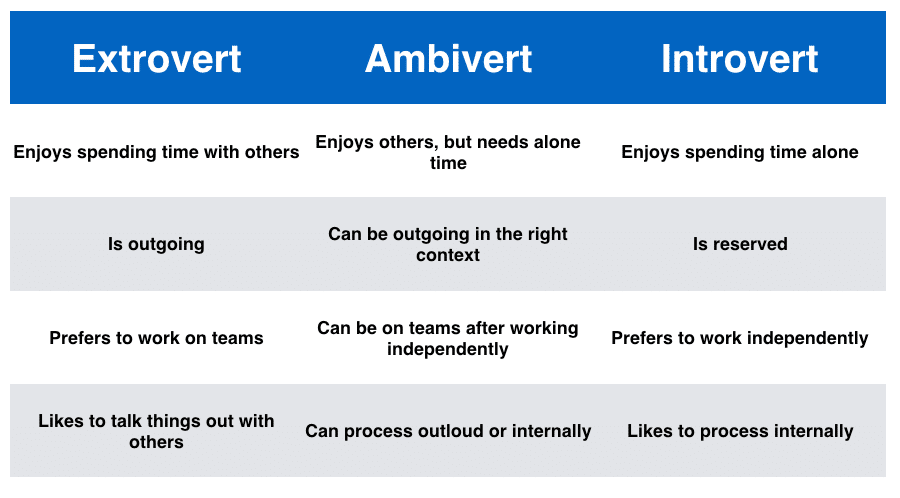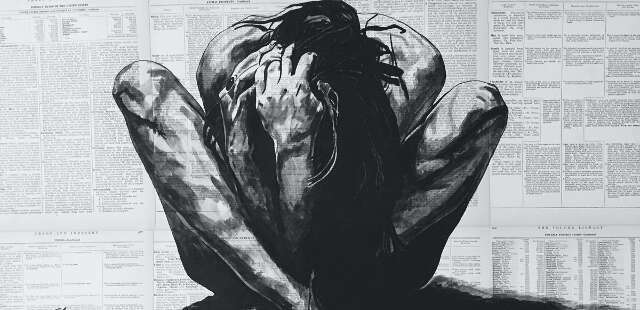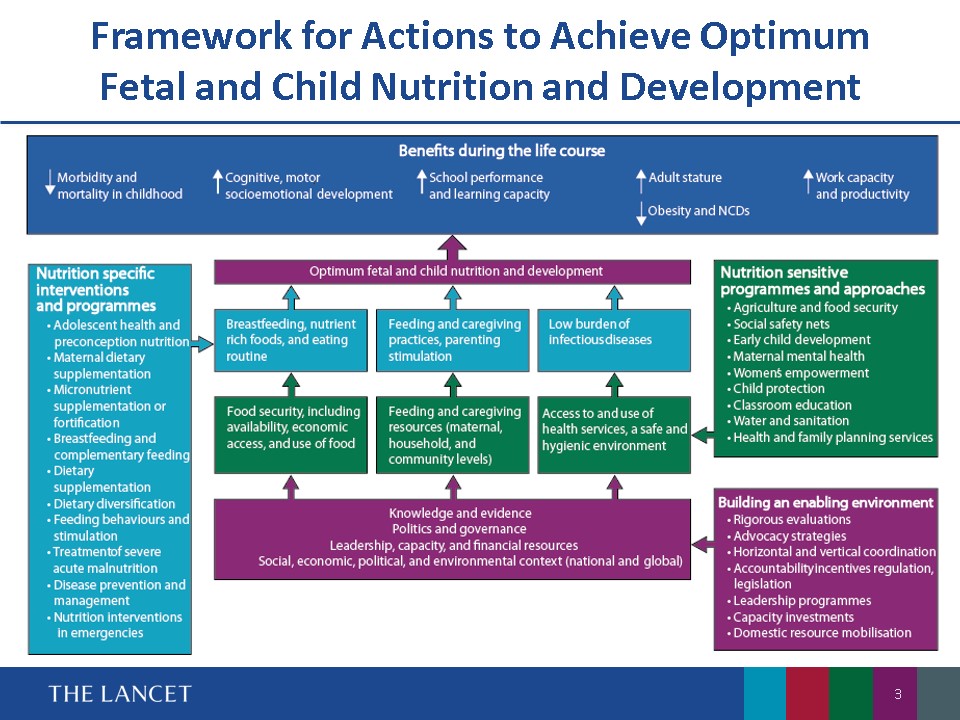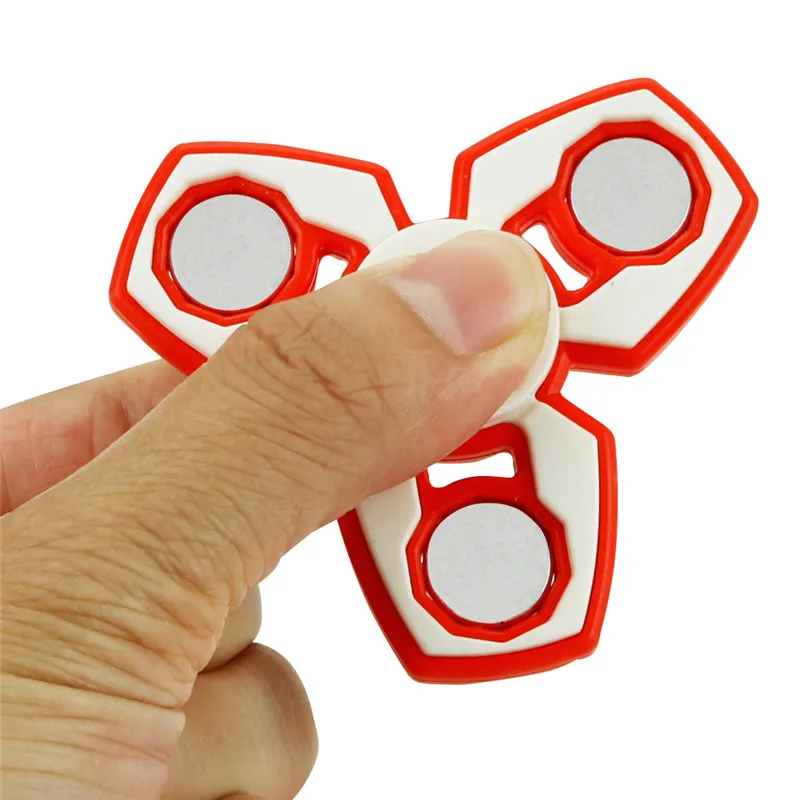What is a shy introvert
10 Struggles Only Shy Introverts Will Understand
As a shy introvert, I don’t think I’m better than others just because I’m watching from the side instead of gyrating in the middle of the dance floor.
Introversion is not the same thing as being shy. Every decent definition of “introvert” makes that distinction. Being an introvert means the outer world drains you and the inner world recharges you, while being shy means you get nervous and self-conscious in social situations. They’re different things.
But what if you’re an introvert who’s also shy? What then?
Even though shyness and introversion are different, there are quite a few introverts who are also shy. (It’s worth noting there are shy extroverts as well, though they’re not the focus of this article.) When you’re a shy introvert, there are certain struggles that other introverts don’t resonate with because they don’t experience social situations in the same way.
So, here are 10 things I’ve dealt with that I think will resonate with other shy introverts. You are not alone!
1. You don’t always fit in with other introverts.
When I first started reading about introversion, I kept coming across experts who said things like, “Introverts aren’t shy” or “Introverts aren’t socially awkward,” because many introverts do just fine in social situations.
This made me feel a little out of place. I’m an introvert, and I’m also shy and socially awkward. So where do I fit in? I’m sure I’m not the only shy introvert who has asked this question.
2. You wonder if you need to change.
Introversion is an inborn personality trait — not something you need to “fix.” Social anxiety, on the other hand, is a mental health condition that can negatively impact your life, and it’s a good idea to seek professional counseling if you’re struggling with it.
But what about the in-between area where shyness lives?
For those who are shy but not always socially anxious, it can be a struggle to figure out how much of your shyness is just part of your personality — and how much of it is something you want to work on overcoming.
3. People misunderstand your intentions.
I’ve had so many people mistake me for being rude or stuck-up simply because my shyness made it hard for me to join groups. Trust me, I don’t think I’m better than others just because I’m off on the side watching instead of gyrating in the middle of the dance floor. And I don’t mean to be rude when I have trouble coming up with small talk when I first meet someone — many times, I simply don’t know what to say.
Introverts go through this, too, but social situations feel so much bigger to shy introverts that people often read my behavior the wrong way.
4. Starting a conversation is hard.
Actually, “hard” doesn’t do the feeling justice. It’s almost impossible at times.
If you’re a shy introvert, not only are you more comfortable inside the safety of your “shell,” but you also have your shyness fueling an inner dialogue about how terribly wrong this conversation could go. Oh, the possibilities! Maybe they’ll think I’m weird just for starting a conversation with them.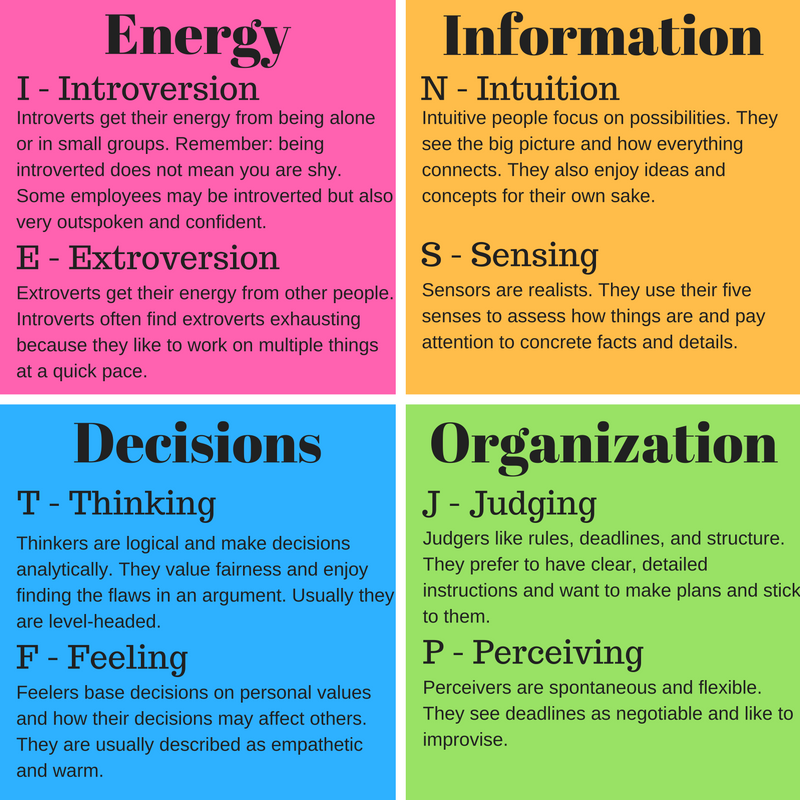 Maybe I’ll run out of things to say and embarrass myself. Maybe I’ll want to escape the conversation later but won’t know how.
Maybe I’ll run out of things to say and embarrass myself. Maybe I’ll want to escape the conversation later but won’t know how.
You know you’re probably overthinking things, but it still makes starting a conversation challenging.
5. Sometimes you just need to leave. RIGHT NOW.
Being in groups of people can be a struggle for any introvert. But when you’re shy on top of that, inevitably there will be times when you suddenly feel like you have to leave — RIGHT NOW.
Maybe this is my anxiety speaking more than my shyness, but sometimes I just hit a point where I’m overwhelmed and/or totally drained, and I have to bail on a group, event, or other gathering. In many cases, my energy starts to return as soon as I’m alone.
All introverts can reach a point where they’re overwhelmed and want to leave a social event. I think the effect is stronger for shy introverts, though, because we’re not just drained by interacting with people — we also feel fear and worry when we’re in groups, and that’s an emotionally draining thing that happens on top of the social exhaustion we feel.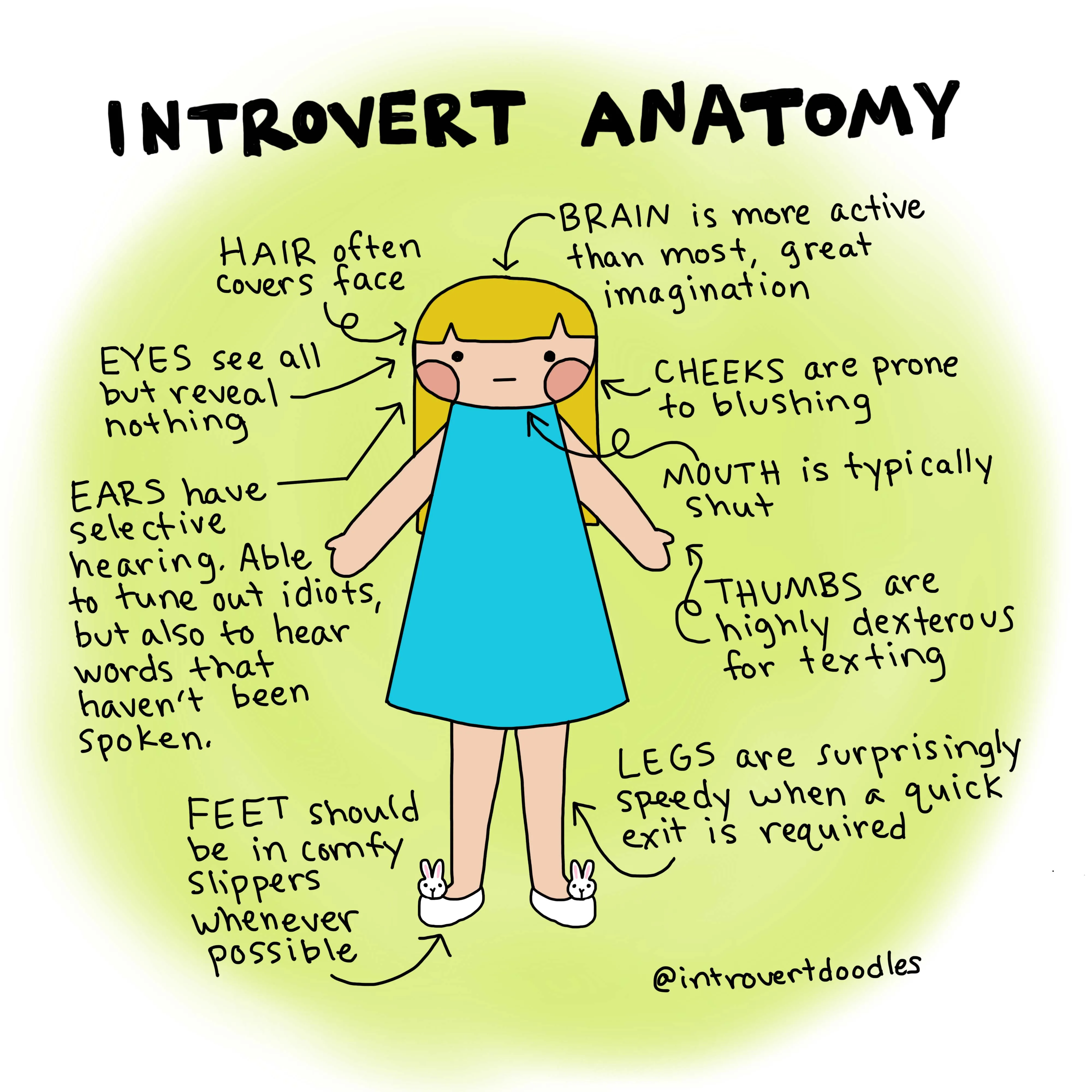
6. People underestimate you.
Sure, you’re not the most outgoing person around, but that doesn’t mean you don’t have valuable skills and talents.
Unfortunately, for shy introverts, people often assume that because we’re hesitant to speak up, it means we don’t have anything valuable to contribute. That can lead to people vastly underestimating us.
Whether it’s someone talking over you in meetings, or assuming you can’t handle a task on your own, it’s often quite a challenge to convince others to stop underestimating you.
Join the introvert revolution. Subscribe to our newsletter and you’ll get one email, every Friday, of our best articles. Subscribe here.
7. You avoid people… even the ones you know.
Introverts, even shy ones, don’t hate people. But we vastly prefer interacting with them when we can plan ahead for it.
For me, bumping into someone accidentally feels incredibly awkward. If I spot someone I know in public and they haven’t seen me yet, there’s a good chance I’ll go out of my way to avoid running into them.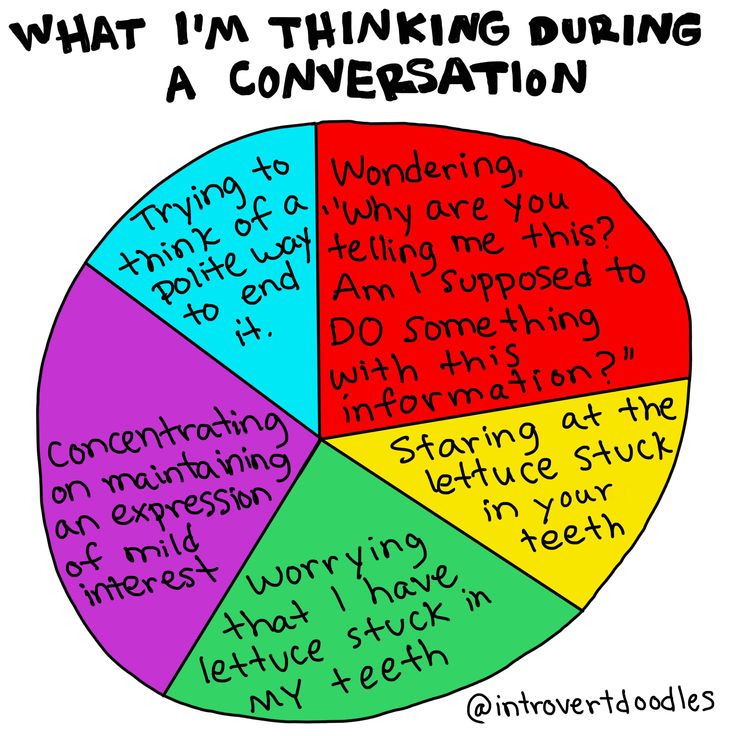
Shy introverts — just like those who are not shy — might also avoid planning social activities because we know they’ll be draining and overwhelming, so it just seems easier not to go in the first place than to leave early.
8. Your body gives away your shyness.
Shyness and anxiety have some very real physical effects that are impossible to hide at times.
One minute you may seem calm, put-together, and in control of the situation. (Sure, you might be worried on the inside, but outside, you make it seem like everything’s okay.) Then suddenly your palms are sweating, your voice starts shaking, and your nerves take over so much that you’re not even sure what you’re saying anymore.
It’s embarrassing, but it’s not something we’re really in control of, so we just have to live with it. (Luckily, there are grounding techniques that can help).
9. You agree to things you don’t want to do.
Fear of confrontation is something lots of people struggle with, and it can be a particular challenge for shy introverts.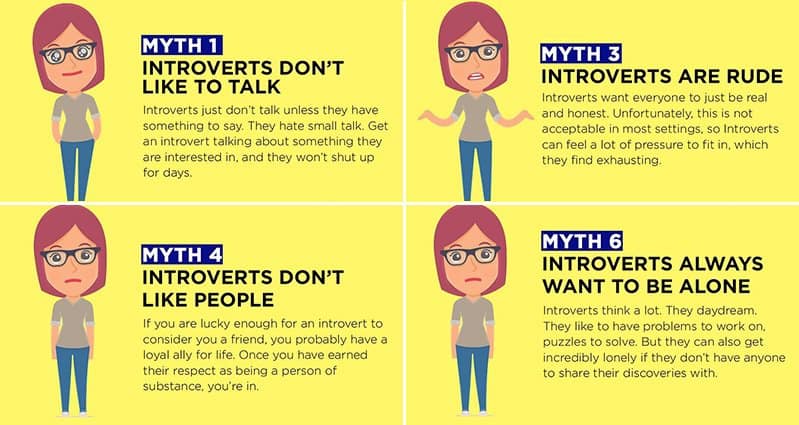
It’s hard enough talking to people in the first place, but when you have to contradict them, it becomes, like, 100 times more difficult. You might end up agreeing with things you don’t want, or losing arguments that you should have won. It can get pretty frustrating at times.
If you avoid conflict too much, you might also have to deal with the added uncomfortableness of later trying to get out of something you agreed to when you were too shy to speak up.
10. You listen better than you speak.
Listening is an underappreciated skill that shy people are often really good at.
Just because social situations make us anxious doesn’t mean we’re not attuned to other people and their needs. Many of us are really good listeners, and we’re often happier sitting back and listening than taking a more active role in the conversation.
At times, I get so comfortable listening that it’s really jarring when someone encourages me to speak up. In fact, the more someone draws attention to the fact that I’m not speaking “enough,” the less likely I am to want to say anything.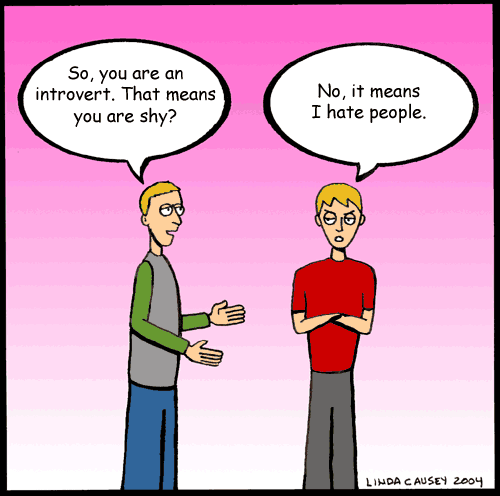
The introvert movement has fought hard to make sure people don’t think all introverts are shy because the two ideas get conflated so often. But there’s still room for shy introverts to shine, albeit in our own quiet way. Our struggles are unique — just like us.
You might like:
- Introverts Don’t Hate People, They Hate Shallow Socializing
- What It’s Like Being an Introvert With Social Anxiety
- Why Some Introverts Hate Their Birthdays
Shy, Introverted, Both, or Neither (and Why Does It Matter)?
By Susan Cain
Bill Gates is quiet and bookish, but apparently unfazed by others’ opinions of him: he’s an introvert, but not shy.
Barbra Streisand has an outgoing, larger than life personality, who also battles with a paralyzing case of stage fright: she’s a shy extrovert.
Shyness and introversion are not the same thing. Shyness is the fear of negative judgment, and introversion is a preference for quiet, minimally stimulating environments.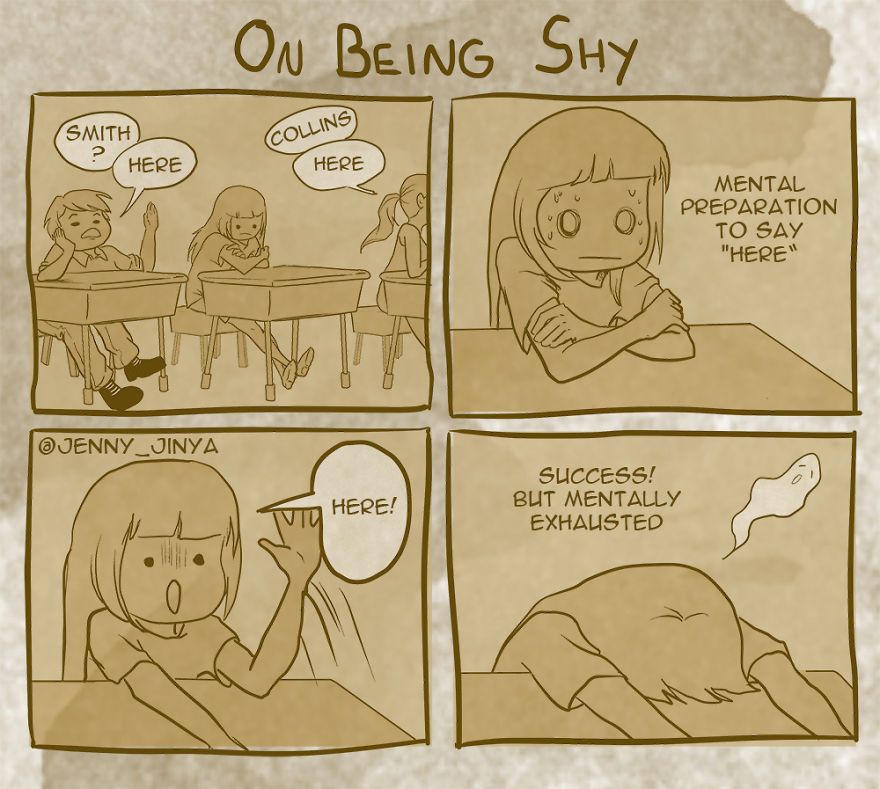 Some psychologists map the two tendencies on vertical and horizontal axes, with the introvert-extrovert spectrum on the horizontal axis and the anxious-stable spectrum on the vertical. With this model, you end up with four quadrants of personality types: calm extroverts, anxious (or impulsive) extroverts, calm introverts, and anxious introverts.
Some psychologists map the two tendencies on vertical and horizontal axes, with the introvert-extrovert spectrum on the horizontal axis and the anxious-stable spectrum on the vertical. With this model, you end up with four quadrants of personality types: calm extroverts, anxious (or impulsive) extroverts, calm introverts, and anxious introverts.
Interestingly, this view of human nature is echoed in ancient Greece. The physicians Hippocrates and Galen famously proposed that our temperaments—and destinies—were a function of bodily fluids. Extra blood made people sanguine (calmly extroverted), yellow bile made them choleric (impulsively extroverted), phlegm made them phlegmatic (calmly introverted), and black bile made them melancholic (anxiously introverted).
But if shyness and introversion are so different, why do we often link them, especially in the popular media?
The most important answer is that there’s a shared bias in our society against both traits. The mental state of a shy extrovert sitting quietly in a business meeting may be very different from that of a calm introvert—the shy person is afraid to speak up, while the introvert is simply overstimulated—but to the outside world, the two appear to be the same, and neither type is welcome. Studies show that we rank fast and frequent talkers as more competent, likable, and even smarter than slow ones.
Studies show that we rank fast and frequent talkers as more competent, likable, and even smarter than slow ones.
Galen aside, poets and philosophers throughout history, like John Milton and Arthur Schopenhauer, have associated shyness with introversion. As the anthropologist C.A. Valentine once wrote,
Western cultural traditions include a conception of individual variability which appears to be old, widespread, and persistent. In popular form this is the familiar notion of the man of action, practical man, realist, or sociable person as opposed to the thinker, dreamer, idealist, or shy individual. The most widely used labels associated with this tradition are the type designations extrovert and introvert.
Were these sages flat out wrong? No. Psychologists have found that shyness and introversion do overlap (meaning that many shy people are introverted, and vice versa), though they debate to what degree. There are several reasons for this overlap.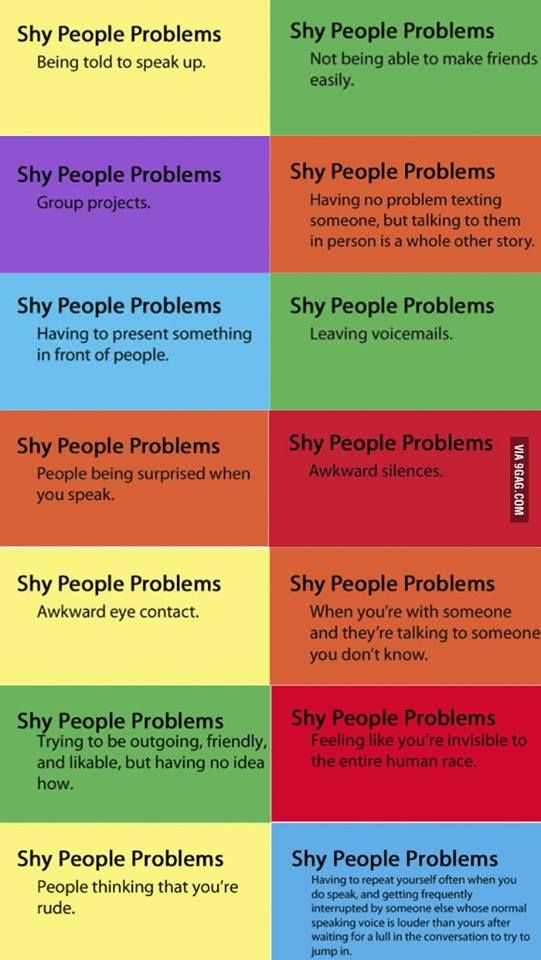 For one thing, some people are born with “high-reactive” temperaments that predispose them to both shyness and introversion. Also, a shy person may become more introverted over time; since social life is painful, she is motivated to discover the pleasures of solitude and other minimally social environments. And an introvert may become shy after continually receiving the message that there’s something wrong with him.
For one thing, some people are born with “high-reactive” temperaments that predispose them to both shyness and introversion. Also, a shy person may become more introverted over time; since social life is painful, she is motivated to discover the pleasures of solitude and other minimally social environments. And an introvert may become shy after continually receiving the message that there’s something wrong with him.
But shyness and introversion don’t overlap completely, or even predominantly. Sometime ago, I published an op-ed in The New York Times on the value of these two characteristics. It touched a chord in a readership hungry for this message. It quickly became the #1 most e-mailed article, and I received over a thousand heartfelt notes of thanks.
But some letter writers felt that the article conflated introversion with shyness and, as such, had misrepresented them. Though I did make a clear distinction in the piece between the two, these writers were correct that I moved on quickly, perhaps too quickly, to other subjects.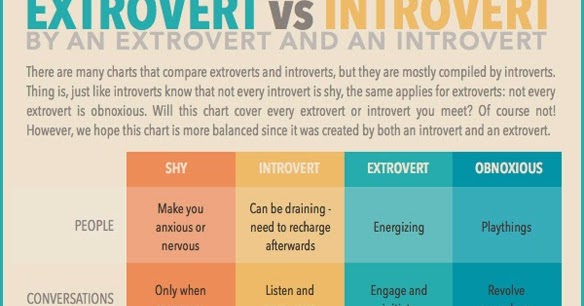 I did this because of space constraints—if I had tried to explain everything I just outlined above (and even this post only scratches the surface of a highly complex topic), I would never have gotten to the real point: the importance of shyness and introversion in a society that disdains them.
I did this because of space constraints—if I had tried to explain everything I just outlined above (and even this post only scratches the surface of a highly complex topic), I would never have gotten to the real point: the importance of shyness and introversion in a society that disdains them.
Still, I understand why non-anxious introverts feel frustrated when people treat them as if they’re shy. It’s inherently annoying to be misunderstood, to be told that you’re something that you’re not. Anyone who has walked down the street deep in thought and been instructed by a stranger to smile—as if he were depressed, rather than mentally engaged—knows how maddening this is.
Also, shyness implies submissiveness. And in a competitive culture that reveres alpha dogs, one-downmanship is probably the most damning trait of all.
Yet, this is where the shy and the introverted, for all their differences, have something profound in common. Neither type is perceived by society as alpha, and this gives both types the vision to see how alpha status is overrated and how our reverence for it blinds us to things that are good, smart, and wise.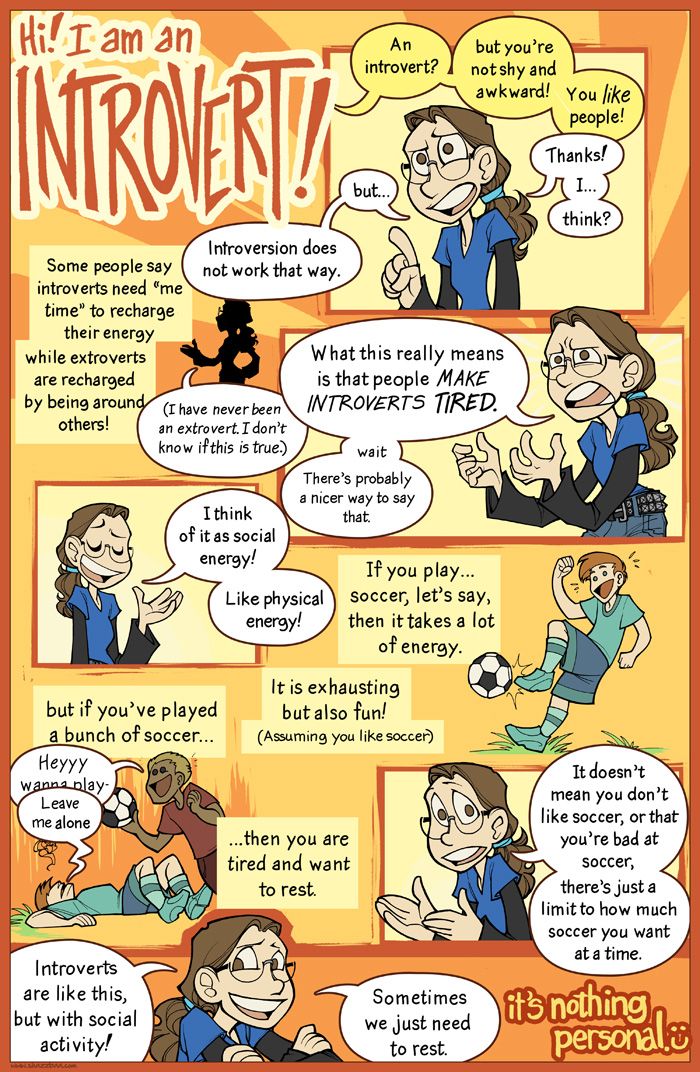 For very different reasons, shy and introverted people might choose to spend their days in behind-the-scenes or “passive” pursuits like inventing, studying, or holding the hands of the dying. These are not alpha roles, but the people who play them are role models all the same.
For very different reasons, shy and introverted people might choose to spend their days in behind-the-scenes or “passive” pursuits like inventing, studying, or holding the hands of the dying. These are not alpha roles, but the people who play them are role models all the same.
*The above post previously appeared on Susan Cain’s former blog, The Power of Introverts.
Introvert Myths Personality Shyness Susan Cain
Whether you are shy, introverted, both or neither, and why it matters
Shyness and introversion are not the same thing.
Bill Gates is quiet and loves to immerse himself in a book, he is not bothered by the opinions of others about him, he is an introvert, but not a shy person. Barbara Streisand is more sociable than the vast majority of people, however, stage fright paralyzes her - she is a shy extrovert.
Shyness and introversion are not the same thing. Shyness is a fear of negative evaluation, while introversion is a person's preference for a calm and quiet environment. Some psychologists plot these tendencies on a graph. The horizontal axis shows whether a person is an introvert or an extrovert, and the vertical axis shows the level of anxiety, or, as it is also called, the level of neuroticism. This model gives us four quadrants of personality types - four types of temperament: calm extrovert, anxious (impulsive) extrovert, calm introvert and anxious introvert.
Some psychologists plot these tendencies on a graph. The horizontal axis shows whether a person is an introvert or an extrovert, and the vertical axis shows the level of anxiety, or, as it is also called, the level of neuroticism. This model gives us four quadrants of personality types - four types of temperament: calm extrovert, anxious (impulsive) extrovert, calm introvert and anxious introvert.
It is noteworthy that such a view of human nature came to us from ancient Greece. Doctors Hippocrates and Galen suggested that our temperaments and destinies are determined by bodily fluids, the predominance of each of which gives us one of four types of temperament. An excessive amount of blood made a person sanguine (calm extrovert), yellow bile - choleric (impulsive extrovert), phlegm turned phlegmatic (calm introvert), and black bile made melancholic (anxious introvert).
However, if the concepts of shyness and introversion are different, why are they often associated with each other, especially in the media?
In this case, it will be most important to note that there are prejudices in society regarding these two tendencies.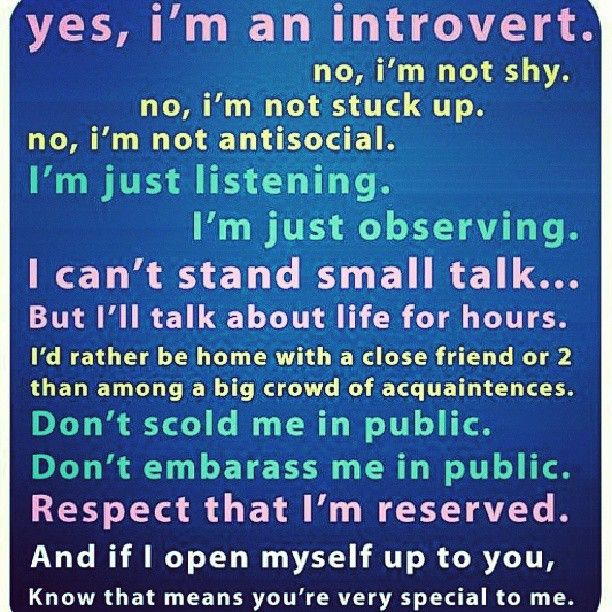 The mental state of a shy extrovert sitting quietly in a meeting can be very different from that of a calm introvert - a shy person is embarrassed to speak, while an introvert simply feels uncomfortable. However, to those around them, these two people seem exactly the same, and neither of these types is valued by society. Research has shown that we rate people who speak fast and a lot as more competent, attractive, and sometimes even smarter than others.
The mental state of a shy extrovert sitting quietly in a meeting can be very different from that of a calm introvert - a shy person is embarrassed to speak, while an introvert simply feels uncomfortable. However, to those around them, these two people seem exactly the same, and neither of these types is valued by society. Research has shown that we rate people who speak fast and a lot as more competent, attractive, and sometimes even smarter than others.
Galen, poets and philosophers of various eras, such as John Milton and Arthur Schopenhauer, linked shyness and introversion. The learned anthropologist K. A. Valentine wrote the following on this subject: on the other hand, and the thinker, dreamer, idealist, and shy person on the other.The most common terms used to refer to these personality types are "extrovert" and "introvert."
So all these pundits were wrong? By no means, no. Psychologists recognize the connection between shyness and introversion, in the sense that many shy people are introverts and vice versa, but they never stop arguing about how much the two overlap. This relationship is due to a number of factors. First, some people are born with a tendency to take everything personally, and this quality predisposes them to both shyness and introversion. In addition, a shy person can become more introverted over time - if social life hurts him, he will be motivated to seek pleasure in solitude, in conditions of minimal social surroundings. An introvert can also become shy over time if his environment continues to say that something is wrong with him.
This relationship is due to a number of factors. First, some people are born with a tendency to take everything personally, and this quality predisposes them to both shyness and introversion. In addition, a shy person can become more introverted over time - if social life hurts him, he will be motivated to seek pleasure in solitude, in conditions of minimal social surroundings. An introvert can also become shy over time if his environment continues to say that something is wrong with him.
However, shyness and introversion are not completely identical concepts, most of their characteristics do not coincide in principle. Recently, The New York Times published my article on the psychology of introverts and the virtues of these two types. I felt that readers have a need for such material, which is why they liked my article so much. This article quickly became the most forwarded, and I received thousands of letters of thanks.
However, in some letters, readers have accused me of combining the traits of an introvert and shyness, and, accordingly, distorted their meaning. And although I made a clear distinction between the two, my readers were right: I really quickly, perhaps too quickly, moved on to other topics. This was partly due to format limitations - if I tried to explain everything at once, then the article would turn out to be too generalized (after all, even this article only lifts the veil of such a complex topic). I would not be able to convey my main message - the importance of shyness and introversion in a society that neglects them so much.
And although I made a clear distinction between the two, my readers were right: I really quickly, perhaps too quickly, moved on to other topics. This was partly due to format limitations - if I tried to explain everything at once, then the article would turn out to be too generalized (after all, even this article only lifts the veil of such a complex topic). I would not be able to convey my main message - the importance of shyness and introversion in a society that neglects them so much.
I also understand why non-anxious introverts get so upset when they are treated like shy people. It's really annoying when you are not understood, taken for someone who you really are not. Imagine: you are walking down the street and thinking about something intently, and at this time a passerby walking towards you, thinking that you have depression, tells you: "Smile." It's infuriating, isn't it?
Moreover, shyness implies submission. In our culture, people compete with each other, here they love alpha males - those who openly show their merits. In such a society, shyness is perhaps the most condemned trait.
In such a society, shyness is perhaps the most condemned trait.
This is exactly what shyness and introversion have in common, despite all their differences. None of these personality types is perceived by society as an alpha type. This gives both types the ability to understand how much alpha status is overrated and how honoring it overshadows the really good, smart, and wise things.
For various reasons, shy people and introverts prefer to spend their days inconspicuously or in passive pursuits, for example, inventing something, devoting themselves to study, caring for terminally ill people. Some occupy leadership positions, but at the same time lead very calmly, allowing their subordinates to express themselves. Recent studies have shown that this type of management is often more effective than a model in which the director takes control of everything.
The roles that we have discussed in this article are not alpha roles, but this does not mean at all that people who adhere to them cannot be role models.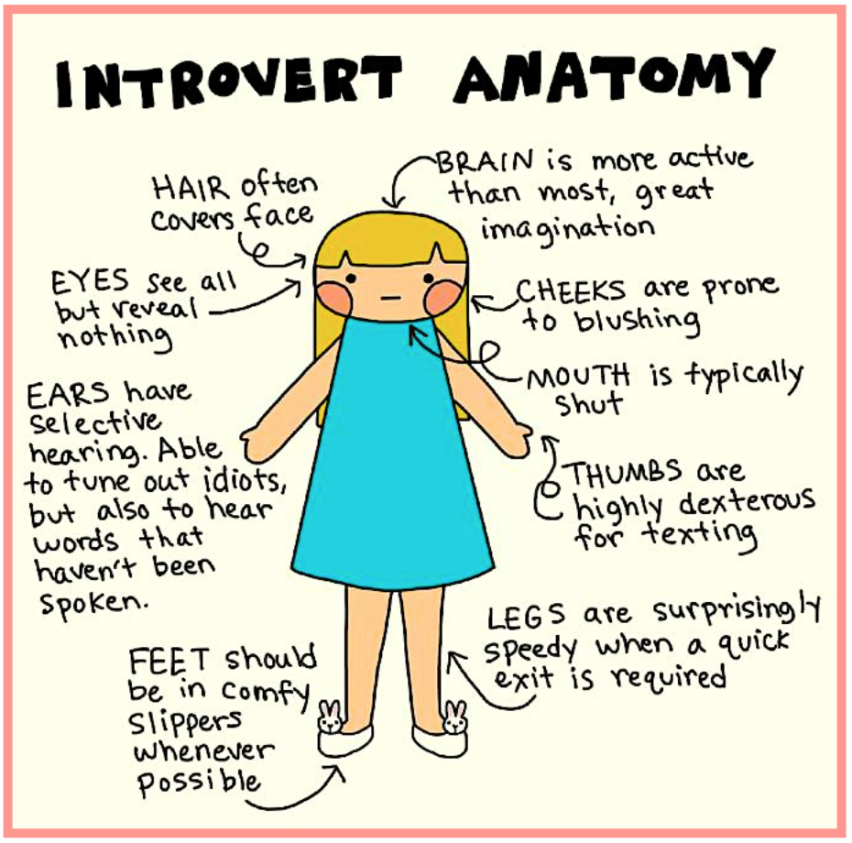
Susan Cain, author of The Quiet Ones: The Power of Introverts in a World That Can't Stop Talking, co-founder of The Quiet Revolution, a startup focused on helping business people manage their introverted employees
The difference between an introvert and a shy person
The main difference between an introvert and a shy person is that introverts avoid social situations because they don't like them, while shy people avoid social situations because of low self-esteem, fear and anxiety.
Although many people think that introverts are shy because both shy people and introverts exhibit similar behaviors, there is a distinct difference between an introvert and shyness. Introverts may want to be social and interact with others, although they may find this mentally draining. However, shy people find it very difficult to be social and social with others.
Contents
- Overview and main differences
- What does introvert mean
- What does shy mean
- Similarities between introvert and shy
- What is the difference between introvert and shy?
- Conclusion
What does an introvert mean?
An introvert is a generally calm and quiet person who prefers to spend time alone rather than often with other people.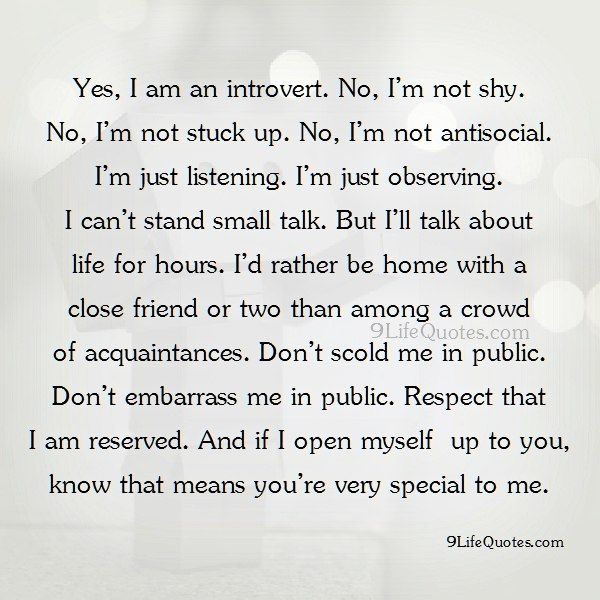 In addition, this type of people can keep their thoughts to themselves and rarely express their ideas and opinions. Therefore, introverts tend to exhibit reserved and solitary behavior. However, being withdrawn is not the same as being shy. While an introvert may appear shy to others, this is not always the correct label. Introverts simply prefer not to be social or interact with others because they don't like it. What's more, while it's unlikely that introverts enjoy spending time with large groups of people and find it difficult and emotional to connect with strangers, they do enjoy being with close friends.
In addition, this type of people can keep their thoughts to themselves and rarely express their ideas and opinions. Therefore, introverts tend to exhibit reserved and solitary behavior. However, being withdrawn is not the same as being shy. While an introvert may appear shy to others, this is not always the correct label. Introverts simply prefer not to be social or interact with others because they don't like it. What's more, while it's unlikely that introverts enjoy spending time with large groups of people and find it difficult and emotional to connect with strangers, they do enjoy being with close friends.
In addition, introverts tend to show interest in solitary activities such as reading, writing, using computers, and hiking. People with a high degree of introversion tend to prefer careers that involve solitary work; for example, writing, modeling, painting, composing, etc. According to some psychologists, the energy of introverts expands during reflection and decreases during interactions.
In addition, introverts are thinkers and observers. They often think well before they speak, and they like to observe situations or actions before they take part in them. Moreover, they prefer plans and set goals and hate sudden changes.
What does shy mean?
A shy person is one who feels nervous and timid in the company of others, especially in the company of strangers. Stuttering, blushing, a slight sense of embarrassment, and a desire to avoid social situations are some of the characteristics you can see in shy people. Moreover, shyness is commonly found in people who are unfamiliar with the situation.
Shy Shy people are not confident enough to stand up to others. As a result, they tend to suffer easily from their immense anxiety and become helpless, not knowing how to overcome this anxiety and interact with others, even if they really want to interact and communicate with others. As a consequence, shy people end up avoiding social situations as it makes them uncomfortable and they end up feeling uncomfortable not being able to move on with others.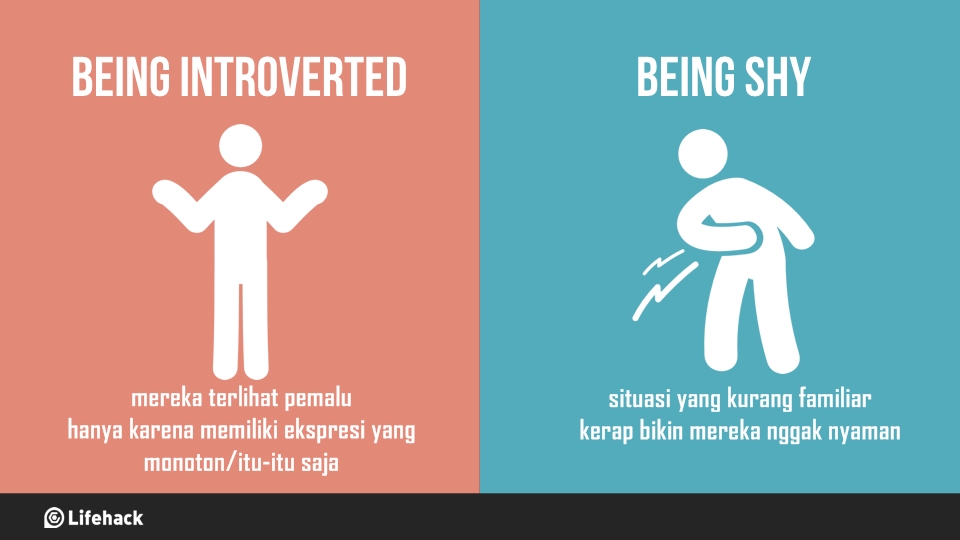 So shy people don't avoid social situations because they don't like it; it is their insecurities, fear and anxiety that make them avoid such situations. Hence, this is the key difference between introvert and shyness.
So shy people don't avoid social situations because they don't like it; it is their insecurities, fear and anxiety that make them avoid such situations. Hence, this is the key difference between introvert and shyness.
It is also important to note that a child who is shy around strangers may eventually lose this trait and may become more socially adjusted with age. However, for some people, shyness can be a lifelong trait.
What are the similarities between an introvert and a shy person?
- Both introverts and shy people exhibit similar behaviors, such as avoiding social situations and interacting with others.
What is the difference between an introvert and a shy person?
An introvert is a generally calm and quiet person who prefers to spend time alone rather than being with other people often, while a shy person is one who feels nervous and timid in the company of others. Therefore, the key difference between an introvert and shyness is the reason for their behavior.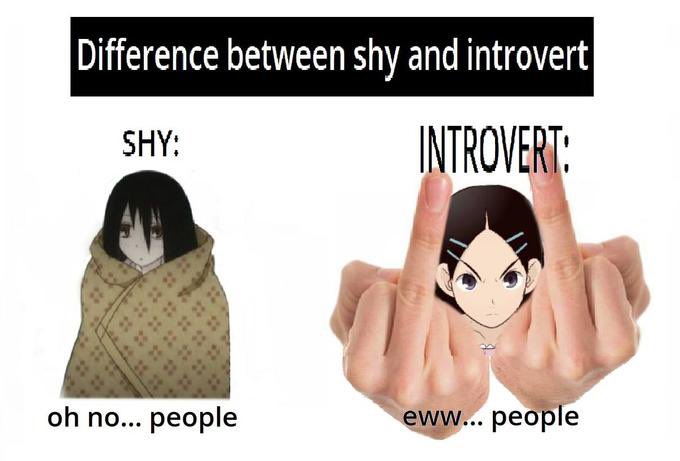 Introverts avoid social situations and interact with others because they prefer to spend time alone. However, shy people avoid social situations because of their low self-esteem, anxiety, and fear. Also, shy people may enjoy socializing with others, but their shyness prevents them from doing so.
Introverts avoid social situations and interact with others because they prefer to spend time alone. However, shy people avoid social situations because of their low self-esteem, anxiety, and fear. Also, shy people may enjoy socializing with others, but their shyness prevents them from doing so.
Moreover, a notable difference between an introvert and shyness is that introverts may have good social skills, although they may find it mentally exhausting to spend a lot of time with others. However, this does not apply to shy people. Also, being an introvert is a personality trait. On the contrary, extreme shyness can be a condition that requires therapy.
Basic Information - Introvert vs. Shy
There is a clear difference between an introvert and a shy person, although they exhibit similar behaviors. The key difference between introvert and shy is that introverts avoid social situations and interact with others because they prefer to spend time alone while shy people avoid social situations due to their low self-esteem, anxiety and fear.


